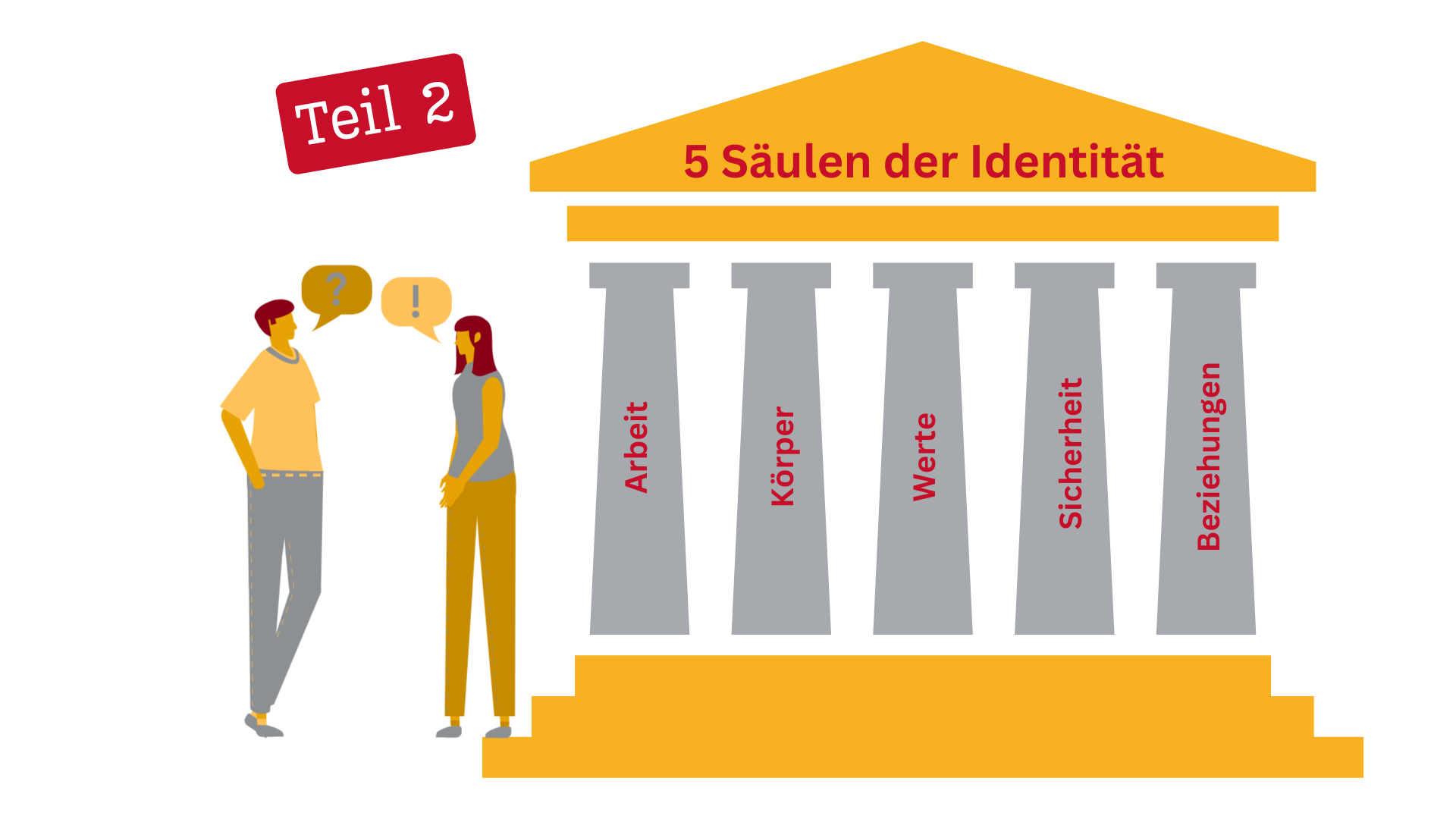In part 2, we show how we as companies and (managers) can use this model to provide targeted support and present a self-reflection sheet that helps to analyze our own stability along the five pillars.
In a world full of uncertainty and unstable conditions, it is not only individuals who suffer, but entire teams and companies. The '5 pillars of identity' offer a valuable framework for reflection to promote stability and resilience - but how do we put this knowledge into practice?
Reducing psychological stress: what companies and consultants can do
The 5 pillars of identity offer companies, HR departments and coaches a helpful structure for providing employees with targeted and systematic support. This allows managers and consultants to explicitly and proactively address the areas that are crucial for stability and psychological resilience.
For example:
- Strengthening physical and mental health: offers for sport, relaxation and resilience training are more important than ever. In this way, companies can support the “body” pillar and give employees the opportunity to strengthen themselves physically and mentally.
- Promote meaning and clarity in work: When employees are clear about the purpose of their work and how it relates to the “bigger picture”, it strengthens the “performance and work” pillar. Coaches and managers should encourage open conversations about goals and perspectives and offer opportunities for further training and development.
- Strengthen social ties: Hybrid forms of work - for all their benefits - still carry the risk of isolation. Companies should establish targeted team events and regular check-ins to strengthen the “contact and social relationships” pillar. Virtual coffee breaks or fixed weekly meetings can also be helpful here. Corona times have shown in many cases that this works. In a series on the company, additional social engagement activities are carried out with voluntary cooperation.
- Emphasize financial stability and counter uncertainties: Clarity and transparency in the company's financial situation help employees to feel financially secure. If this security is not given, managers should speak openly about challenges in order to maintain confidence in the plans. In most cases, unsparing openness is even better than negative fantasies.
- Promote values and a healthy corporate culture: The company's values and the conscious discussion of them contribute significantly to the “values and beliefs” pillar. Companies should promote a culture that invites respect, inclusion and explicit recognition of mental and emotional phases of weakness: This strengthens employees' resilience and sense of belonging.
Conclusion: Creating stability in unstable times
Increasing uncertainty demands a lot from companies and our employees. This makes it all the more important to act as a manager or consultant with a clear idea of how to strengthen individual resources. In our opinion, this is now clearly part of the requirement profile as part of the professional (leadership) role. The 5 pillars model offers a valuable structure to specifically address the needs of employees and promote mental health. In these times of instability, we can support each other and build on healthy, respectful cooperation - for a safe and resilient working environment.
Act now for your own well-being and that of your employees! Talk to your team about the challenges and use the 5 pillars model as a basis for in-depth understanding and concrete measures.
Call4Action:
Where are you right now? With our self-analysis reflection sheet, you can explore your personal stability along the '5 pillars of identity'. A completed example shows you how in-depth self-reflection can help you gain clear insights and discover new solutions. Try it out! Available in German - feel free to translate or contact us!




